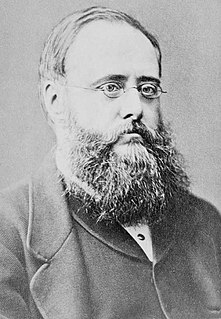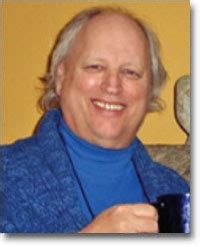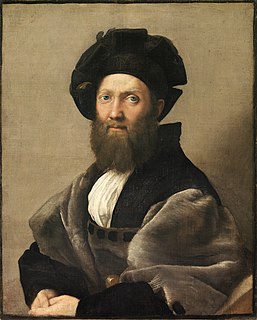A Quote by Philip James Bailey
The poet's pen is the true divining rod Which trembles towards the inner founts of feeling; Bringing to light and use, else hid from all, The many sweet clear sources which we have of good and beauty in our own deep bosoms; And marks the variations of all mind As does the needle.
Related Quotes
The woman who first gives life, light, and form to our shadowy conceptions of beauty, fills a void in our spiritual nature that has remained unknown to us till she appeared. Sympathies that lie too deep for words, too deep almost for thoughts, are touched, at such times, by other charms than those which the senses feel and which the resources of expression can realise. The mystery which underlies the beauty of women is never raised above the reach of all expression until it has claimed kindred with the deeper mystery in our own souls.
A true poet is more than just a man who can write a poem with a pen. A true poet writes poetry with his very life. A true poet doesn't use poetic devices to con the heart of a woman but uses the beauty of all that is poetic to serve, cherish, and express love to the heart of a woman. Just as a true warrior is not a conqueror of femininity but a protector of femininity, a true poet is not just a wooer of a woman's heart but one who knows how to nurture and plant love in a woman's heart. Simply put, a true poet is a man who knows how to be intimate with a lover - first and foremost with Christ.
One of the surest tests of the superiority or inferiority of a poet is the way in which a poet borrows. Immature poets imitate mature poets steal bad poets deface what they take and good poets make it into something better or at least something different. The good poet welds his theft into a whole of feeling which is unique utterly different than that from which it is torn the bad poet throws it into something which has no cohesion. A good poet will usually borrow from authors remote in time or alien in language or diverse in interest.
For with eyes made clear by many tears, and a heart softened by the tenderest sorrow, she recognized the beauty of her sister's life—uneventful, unambitious, yet full of the genuine virtues which 'smell sweet, and blossom in the dust', the self-forgetfulness that makes the humblest on earth remembered soonest in heaven, the true success which is possible to all.
I think we each have a personal sweet spot as well. It's the state of mind in which we experience the most joy and satisfaction in being ourselves. And from that place of pleasure and joy in being ourselves, energy arises to flow out into our day bringing with it the depth and resonance of our own beingness, bringing with it blessing.
Then the soul, freed from vice, purged by studies of true philosophy, versed in spiritual life, and practised in matters of the intellect, devoted to the contemplation of her own substance, as if awakened from deepest sleep, opens those eyes which all possess but few use, and sees in herself a ray of that light which is the true image of the angelic beauty communicated to her, and of which she then communicates a faint shadow to the body.
Every human soul has seen, perhaps before their birth, pure forms such as justice, temperance, beauty and all the great moral qualities which we hold in honour. We are moved towards what is good by the faint memory of these forms, simple and calm and blessed, which we saw once in a pure, clear light, being pure ourselves.
The reflections that the boys of this age are to be the men of the next; that they should be prepared to receive the holy charge which we are cherishing to deliver over to them; that in establishing an institution of wisdom for them, we secure it to all our future generations; that in fulfilling this duty, we bring home to our own bosoms the sweet consolation of seeing our sons rising under a luminous tuition, to destinies of high promise; these are considerations which will occur to all.
A poet dares to be just so clear and no clearer; he approaches lucid ground warily, like a mariner who is determined not to scrape his bottom on anything solid. A poet's pleasure is to withhold a little of his meaning, to intensify by mystification. He unzips the veil from beauty, but does not remove it. A poet utterly clear is a trifle glaring.
Those who have little interest in spirituality shouldn’t think that human inner values don’t apply to you. The inner peace of an alert and calm mind are the source of real happiness and good health. Our human intelligence tells us which of our emotions are positive and helpful and which are damaging and to be restrained or avoided.




































